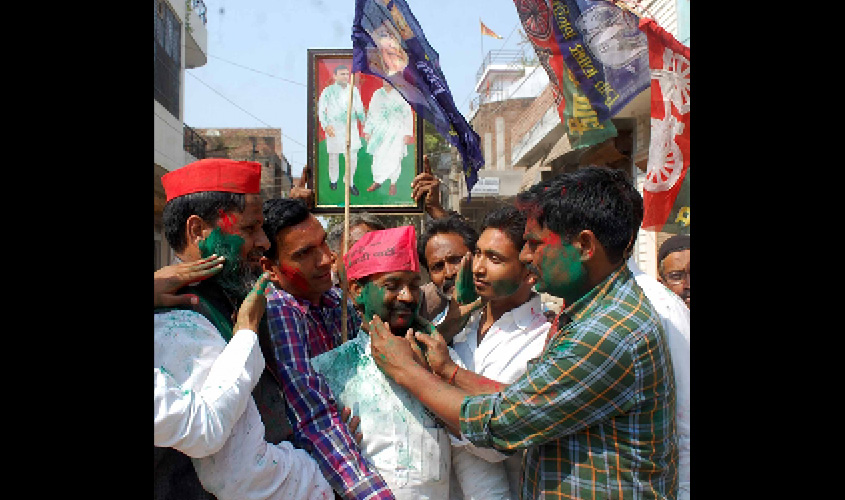‘They intend to win with the help of Congress’ vote bank and use these wins to demand a bigger role in 2019.’
The demand for “package deals” by the Samajwadi Party (SP) and Bahujan Samaj Party (BSP) in the upcoming Assembly elections in Madhya Pradesh, Rajasthan and Chhattisgarh, has put Congress in a tight spot for negotiations in the 2019 general elections. Both the allies are heavily relying on the Assembly elections to forge out a strategy for 2019.
The total Lok Sabha seats in the three poll-bound states is 65, with 29 seats in Madhya Pradesh, 11 seats in Chhattisgarh and 25 seats in Rajasthan. While the Congress has significant visibility in all the three states, for SP and BSP, a united Opposition brings an opportunity to expand their vote bank in these states.
Hence, the Congress’ two major allies have made it clear that an alliance in Assembly elections is the only way for alliance in 2019. Speaking to The Sunday Guardian, Vandana Singh, spokesperson, SP, said, “The Assembly elections are very important for us. We are being reasonable too. Wherever Congress is strong, it can contest the seat and we can look after the few others.”
SP leaders are more focused on Madhya Pradesh than the rest of the two poll-bound states. In Madhya Pradesh, SP wants to contest in the border areas near Uttar Pradesh where BSP too has a significant following, hence making a seat-sharing arrangement even more complicated.
Singh said, “The purpose of the alliance in Assembly elections is not to marginalise the votes of our allies, but to defeat the Bharatiya Janata Party (BJP). We will cut into the BJP’s vote bank by forming an alliance. We are trying to come to an understanding to contest on seats where we have a chance.”
BSP in Madhya Pradesh has insisted on contesting on 30 seats which would put Congress’ ticket aspirants at a disadvantage. In 2013 Madhya Pradesh Assembly elections, BSP won four seats as it mustered over 20,000 votes on 17 seats as well as secured approximately 10,000 in 62 constituencies. The Congress’ vote share was 37% and SP could score only 0.03% votes in MP in 2013.
In Rajasthan, the SP is targeting for five or six seats only, but Congress’ state leadership is reluctant to go for an alliance. Avinash Pande, general secretary, All India Congress Committee and in-charge of Rajasthan, said, “Our workers are putting in a lot of effort to send accurate reports to the high command on what our situation is in each and every seat. Once the reports are sent, it is up to the senior leadership to take a final decision on the alliances which the state leaders have already said they will accept.”
SP and BSP will gain on Congress’ voter base on whichever seats they contest since Congress is the major Opposition party in Rajasthan. Even if the allies win on all seats they contest in Rajasthan, the Congress is clear that it will be more because of the core Congress voters.
Psephologist Bhawesh Jha said, “This is why I say that the whole talk of package deals in Assembly elections is largely a pressure
In Chhattisgarh, however, SP has no intention to get ambitious. The Congress is again the largest competitor to the ruling BJP, but BSP as well as the newly formed Janta Congress Chhattisgarh (JCC) and Janata Dal (Secular), are other key partners with which Congress is dabbling with.
According to sources, there is a possibility that the JDS will support BSP candidates much like BSP did in the Karnataka elections for JDS, and JCC will tie up with BSP to not field candidates where BSP has a better chance of winning. Then, Congress intends to come to a seat-sharing formula with BSP which scored 294,000 votes in the 2014 Lok Sabha elections where it had fielded candidates in all 11 parliamentary seats with a 2.4% vote share.

